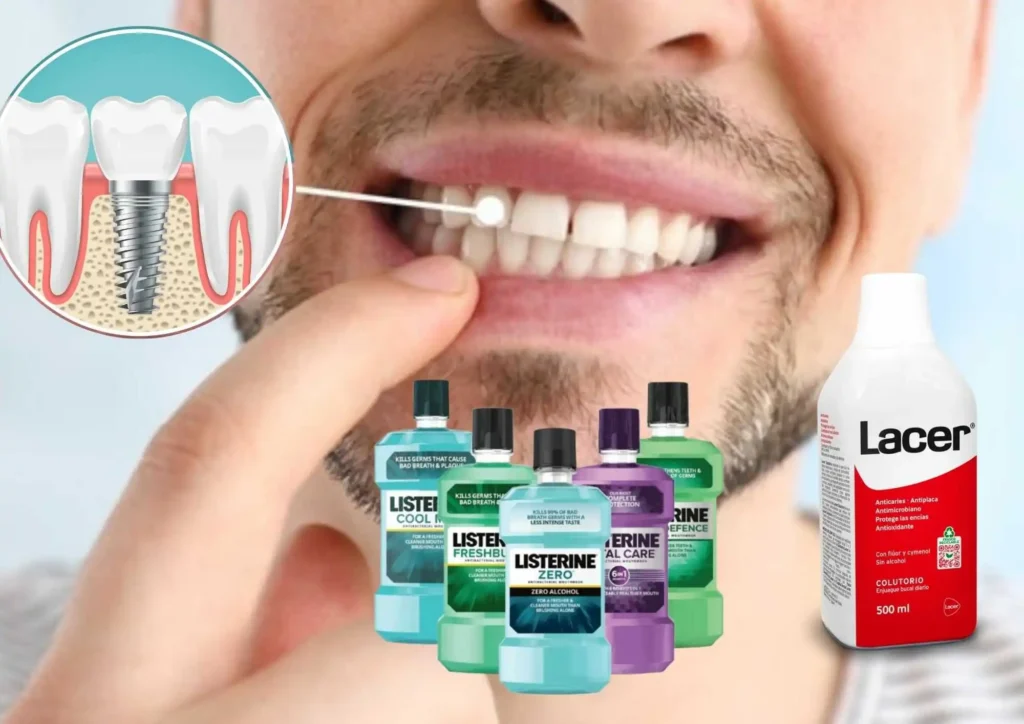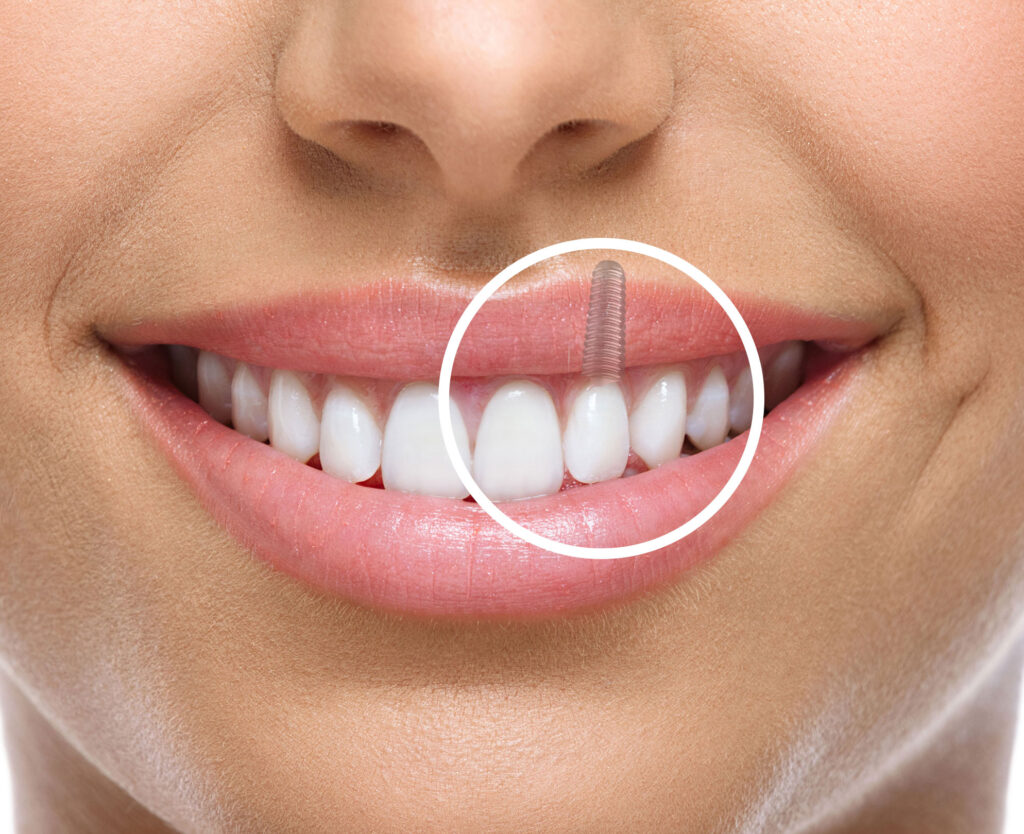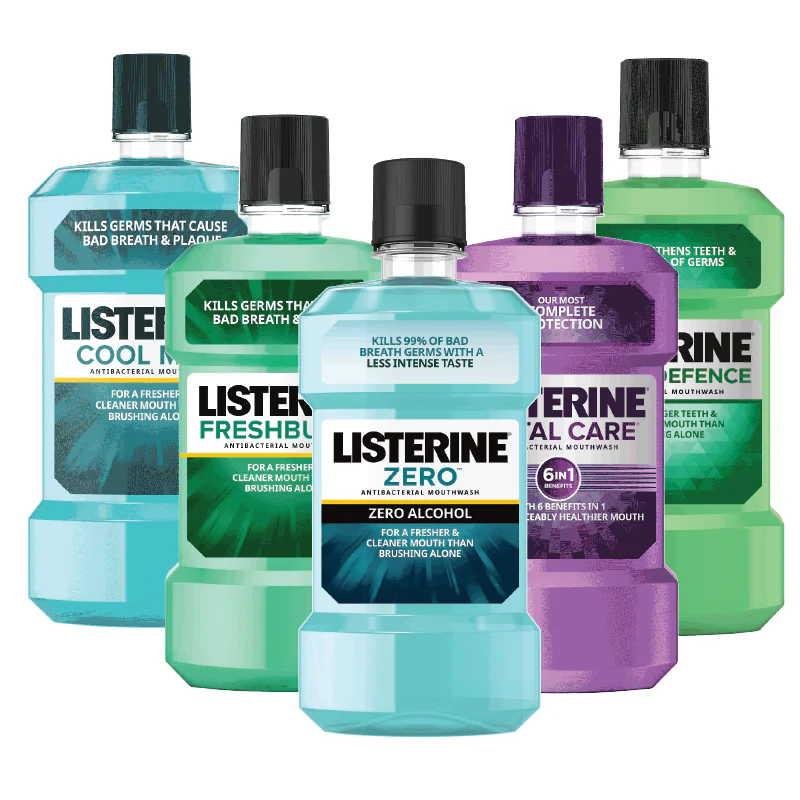How to Use Mouthwash Effectively After Dental Implants

1. Follow Your Dentist’s Instructions
Always adhere to the instructions provided by your dentist regarding mouthwash use. Overusing or misusing mouthwash can disrupt the healing process or cause irritation.
2. Regular but Moderate Use
Use mouthwash regularly, but avoid overuse. Too frequent rinsing may cause dryness or disrupt the mouth’s natural balance. Twice daily is generally recommended unless otherwise directed.
3. Complement with Proper Brushing and Flossing
Mouthwash should supplement—not replace—good oral hygiene practices like gentle brushing and flossing. Use it as part of a comprehensive routine to maintain a healthy and clean mouth.
Potential Issues and Solutions With Mouthwash

1. Dry Mouth
Some mouthwashes may contribute to dry mouth, which can be uncomfortable and detrimental to healing. Combat this by choosing alcohol-free options and staying well-hydrated throughout the day.
2. Staining
Certain mouthwashes, such as those containing chlorhexidine, may cause temporary staining of teeth. If staining occurs, consult your dentist for advice on managing it, as professional cleanings can often resolve the issue. Additionally, opting for a whitening mouthwash can help restore brightness to your smile.
3. Irritation
Mouthwashes with strong ingredients, such as alcohol or menthol, may cause irritation in some individuals. If you experience discomfort while using a particular mouthwash, try switching to a gentle formulation or diluting it with water before use. If the irritation persists, consult your dentist for alternative options.
4. Allergic Reactions
Some individuals may have allergic reactions to certain ingredients in mouthwashes. If you notice any adverse effects like swelling, difficulty breathing, or rash after using a new mouthwash, discontinue use immediately and seek medical attention if necessary.
5. Mouthwash for Children
Children may also benefit from using mouthwash, but it is important to choose a formulation specifically designed for their age range. Adult mouthwashes can contain high levels of alcohol and other ingredients that may not be suitable for children. Consult your child’s dentist before introducing them to a mouthwash routine.

Conclusion
Mouthwash can be a valuable addition to your daily oral hygiene routine, providing many benefits such as fresher breath, reduced plaque buildup, and improved gum health. However, it is important to choose the right type of mouthwash for your specific needs and use it correctly according to the instructions on the label.
